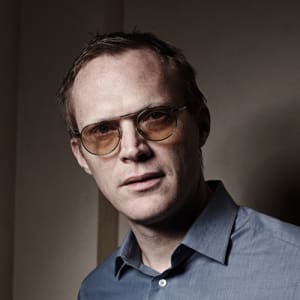
Bashar al-Assad
As the successor to his father, Hafez, Bashar al-Assad has continued with his father’s brutal rule of Syria.
Who Is Bashar al-Assad?
Born on September 11, 1965, Bashar al-Assad had no intention of entering political life, let alone becoming president of Syria. But a tragic death and a calculating father saw to it that he would. Though promising to be a transformational figure who would propel Syria into the 21st century, al-Assad has instead followed in the footsteps of his father, leading to demands for reform and the launch of a deadly civil war.
Early Life
Born on September 11, 1965, Bashar Hafez al-Assad is the second son of former Syrian President Hafez al-Assad, and his wife, Anisa. Hafez had risen to power through the Syrian military and the minority Alawite political party to take control of Syria in 1970. With much of the military composed of fellow Alawite associates, he was able to integrate the military into his political regime, and ruled Syria with an iron fist for three decades.
Bashar grew up quiet and reserved, in the shadow of his more dynamic and outgoing brother, Bassel. Educated at the Arab-French al Hurriya School in Damascus, Bashar learned to speak fluent English and French. He graduated from high school in 1982, and went on to study medicine at the University of Damascus, graduating in 1988. He conducted his residency in ophthalmology at the Tishreen military hospital outside of Damascus, and then traveled to Western Eye Hospital in London, England in 1992.
At this time, Bashar was leading the life a medical student, and had no intentions of entering a political life. His father had been grooming Bassel as the future president. But in 1994, Bassel was killed in an automobile accident, and Bashar was recalled to Damascus. His life would soon radically change, as his father quickly and quietly moved to have Bashar succeed him as president.
Bashar entered the military academy at Homs, located north of Damascus, and was quickly pushed through the ranks to become a colonel in just five years. During this time, he served as an advisor to his father, hearing complaints and appeals from citizens, and led a campaign against corruption. As a result, he was able to remove many potential rivals.
Presidency
Hafez al-Assad died on June 10, 2000. In the days following his death, Syria's parliament quickly voted to lower the minimum age for presidential candidates from 40 to 34, so that Bashar could be eligible for the office. Ten days after Hafez's death, Bashar al-Assad was chosen for a seven-year term as president of Syria. In a public referendum, running unopposed, he received 97 percent of the vote. He was also selected leader of the Ba'ath Party and commander in chief of the military.
Bashar was considered a younger-generation Arab leader, who would bring change to Syria, a region long filled with aging dictators. He was well-educated, and many believed he would be capable of transforming his father's iron-rule regime into a modern state. Bashar initially seemed eager to implement a cultural revolution in Syria. He stated early on that democracy was "a tool to a better life," though he added that democracy couldn't be rushed in Syria. In his first year as president, he promised to reform the corruption in the government, and spoke of moving Syria toward the computer technology, internet and cell phones of the 21st century.
When Bashar took the reins of government, Syria's economy was in terrible shape. Lost were the decades of support from the Soviet Union after its collapse in 1991. A serious recession in the mid-1990s was exacerbated by Syria squandering its oil revenues on its second-rate army. However, by 2001, Syria was showed many of the signs of a modern society—cell phones, satellite television, trendy restaurants and Internet cafes.
Nevertheless, economic reform proved difficult to achieve in the nation's state-controlled economy. After his first year as president, many of Bashar's promised economic reforms had not materialized. The grossly overstaffed and largely corrupt government bureaucracy made it difficult for a private sector to emerge, and Bashar seemed incapable of making the necessary systemic changes that would move Syria and its 17 million people into the 21st century.
In international affairs, Bashar was confronted with many of the issues his father faced: a volatile relationship with Israel, military occupation in Lebanon, tensions with Turkey over water rights, and the insecure feeling of being a marginal influence in the Middle East. Most analysts contend that Bashar continued his father's foreign policy, providing direct support to militant groups such as Hamas, Hezbollah and Islamic Jihad, though Syria officially denied this.
Though a gradual withdrawal from Lebanon began in 2000, it was quickly hastened after Syria was accused of involvement in the assassination of former Lebanese premier Rafik Hariri. The accusation led to a public uprising in Lebanon, as well as international pressure to remove all troops. Since then, relations with the West and many Arab states have deteriorated.
Despite promises of human rights reform, not much has changed since Bashar al-Assad took office. In 2006, Syria expanded its use of travel bans against dissidents, preventing many from entering or leaving the country. In 2007, the Syrian Parliament passed a law requiring all comments on chat forums to be posted publicly. In 2008, and again in 2011, social media sites such as YouTube and Facebook were blocked. Human rights groups have reported that political opponents of Bashar al-Assad are routinely tortured, imprisoned and killed.
Civil War
Following successful regime change in Tunisia, Egypt and Libya, protests began in Syria on January 26, 2011, demanding political reforms, a reinstatement of civil rights and an end to the state of emergency, which had been in place since 1963. Outraged by government inaction, the protests spread and became larger.
In May 2011, the Syrian military responded with violent crackdowns in the town of Homs and the suburbs of Damascus. In June, Bashar promised a national dialogue and new parliamentary elections, but no change came, and the protests continued. That same month, opposition activists established a "National Council" to lead a Syrian revolution.
By the fall of 2011, many countries were calling for President Bashar al-Assad's resignation and the Arab League suspended Syria, leading the Syrian government to agree to allow Arab observers into the country. In January 2012, the Reuters News Agency reported that more than 5,000 civilians had been killed by the Syrian militia (Shabeeha), and that 1,000 people had been killed by anti-regime forces. That March, the United Nations endorsed a peace plan that was drafted by former UN Secretary Kofi Annan, but this didn't stop the violence.
In June 2012, a UN official stated that the uprisings had transitioned into a full-scale civil war. The conflict continued, with daily reports of the killing of scores of civilians by government forces, and counter-claims by the al-Assad regime of the killings beging staged or the result of outside agitators.
In August 2013, al-Assad came under fire from leaders around the world, including U.S. president Barack Obama and British prime minister David Cameron, for using chemical weapons against civilians. However, he was able to stave off foreign intervention with assistance from Russian president Vladimir Putin, who agreed to help remove the Syrian stockade of chemical weapons.
Reelected to his post in June 2014, Bashar al-Assad continued his campaign against rebel forces while dismissing outside calls to step down. His position was strengthened the following September, when Russia agreed to provide military support. By February 2016, the conflict had led to an estimated 470,000 deaths in Syria, and sparked international debate over how to handle the millions of refugees seeking to escape the brutality.
In April 2017, following news of another round of chemical weapons unleashed on civilians, new U.S. President Donald Trump ordered airstrikes on a Syrian airbase, drawing sharp condemnation from al-Assad and his allies in Russia and Iran.
One year later, in April 2018, more disturbing footage of dead or suffering Syrians surfaced amid reports that al-Assad had again used chemical weapons. According to activist groups in the area, helicopters had dropped barrel bombs filled with toxic gas on Douma, the last rebel-held town in Eastern Ghouta, resulting in at least four dozen casualties. However, independent verification of the gassing deaths proved difficult to obtain, and both Syria and Russia, denied any responsibility for the attacks, calling it a "hoax" perpetrated by Syrian rebels.
Regardless, the news enraged President Trump, who called al-Assad an "animal" and even delivered rare public criticism of Putin for protecting the Syrian leader. Early in the morning of April 14, a joint operation of American, British and French forces conducted strikes on Syria, successfully hitting two chemical weapons facilities and a scientific research center.
Meanwhile, a U.N. report found that North Korea had made approximately 40 shipments of chemical weapon-type materials to Syria between 2012 and 2017. In June 2018, North Korea's KCNA news agency announced that al-Assad was planning a state visit to meet with North Korean leader Kim Jong-un.




